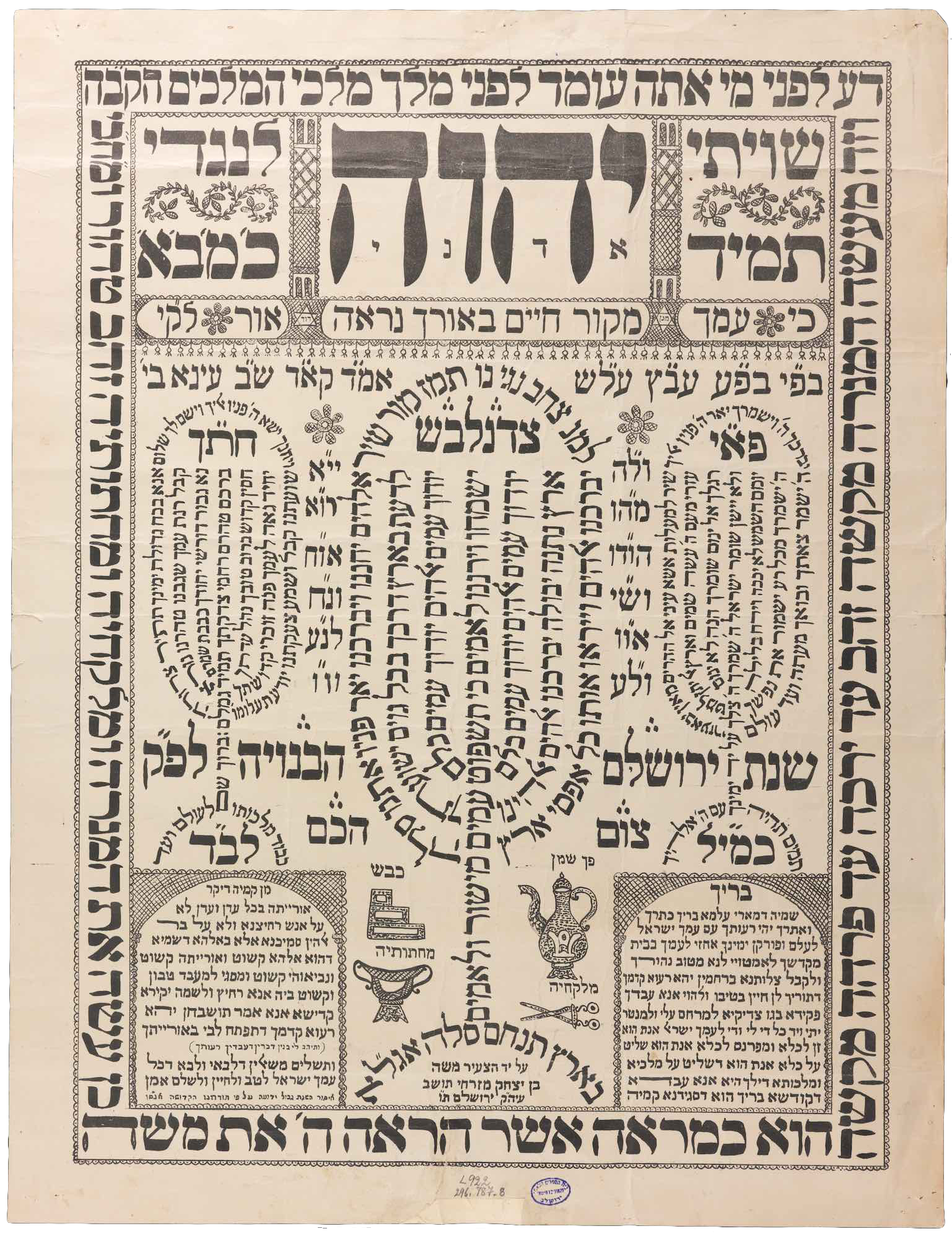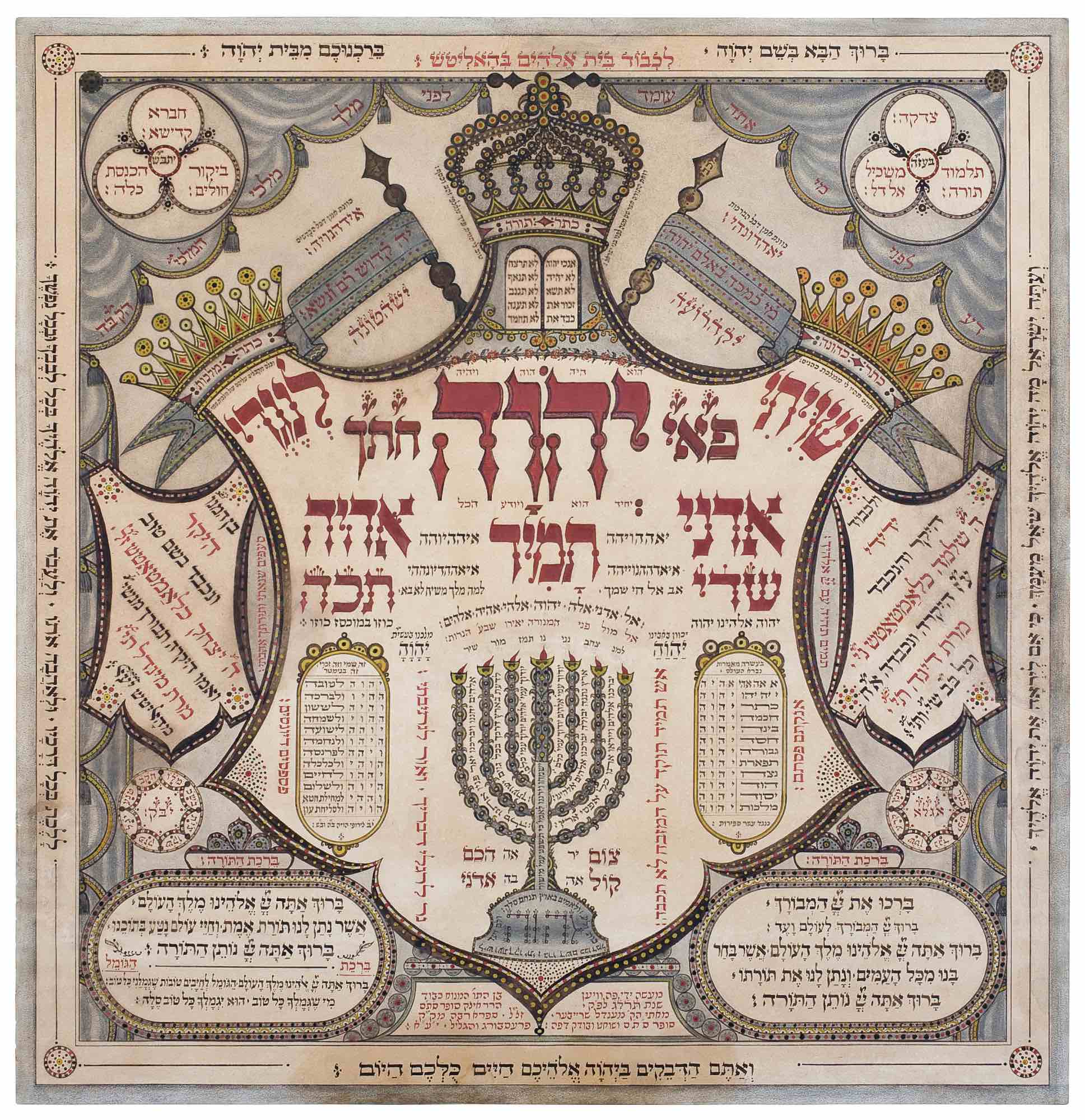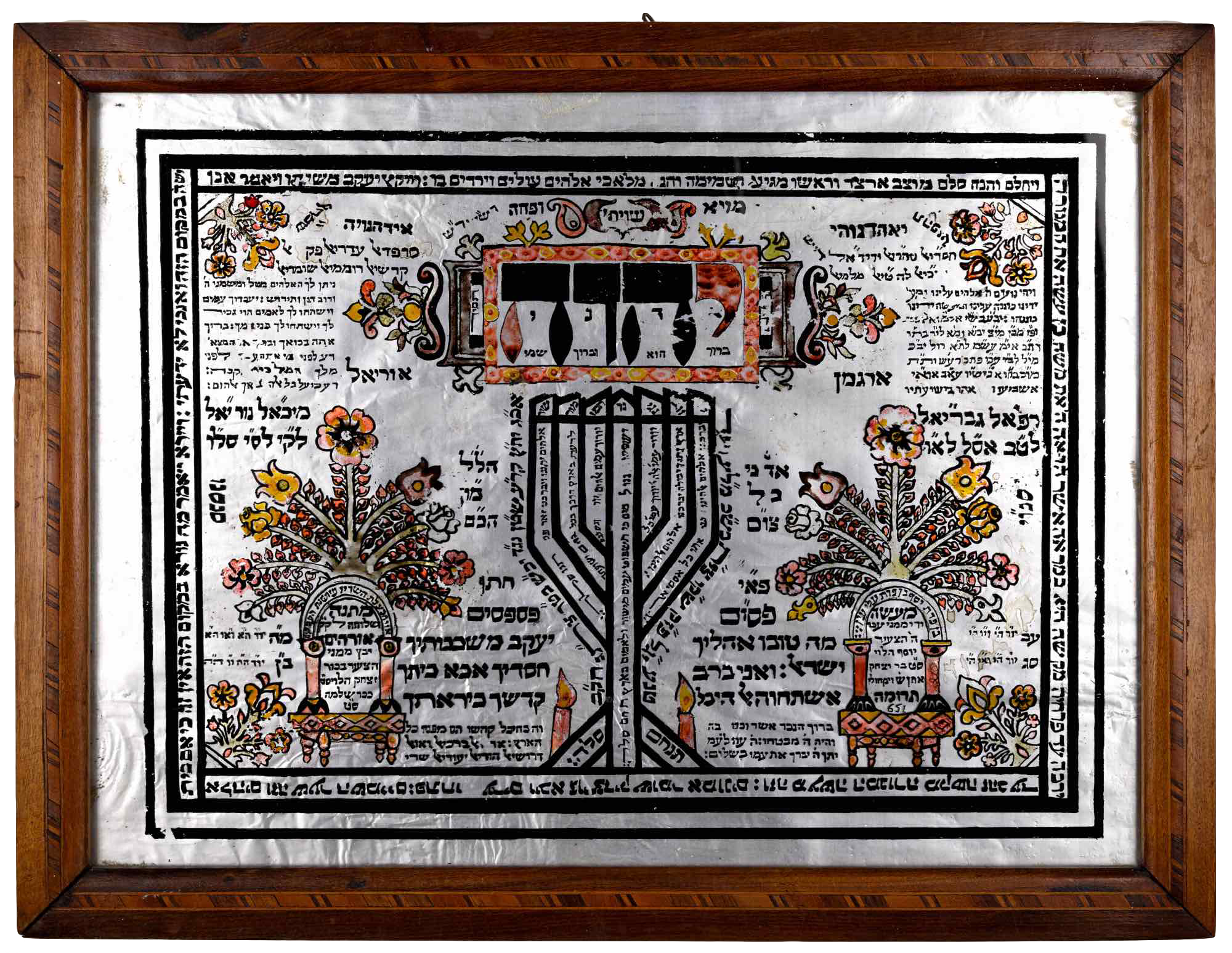
De woorden sjiviti hasjem lenegdi tamied (Steeds houd ik de Eeuwige voor ogen, ps.16:8) staan in de synagoge op een ornament in de muur, een bord of een plaat, ter herinnering aan de goddelijke aanwezigheid.




A visual explanation of the papercut shiviti from Gyöngyös, Hungary.
Juhasz, Esther. “The Amuletic Menorah.” In the Light of the Menorah: Story of a Symbol, ed. Yael Israeli, Jerusalem: The Israel Museum, 1998, pp. 147-151.
Juhasz, Esther. “Luach ‘Shiwti’ Ba-Merchav Ha-Ashkenazi [The Shiviti Plaque in the Ashkenazi World].” Chut Shel Chen: Shay le-Chava Turnianski [A Touch of Grace: Studies in Ashkenazi Culture, Women’s History, and the Languages of the Jews: Presented to Chava Turnianski], ed. Israel Bartal et al., vol. 2, Jerusalem: The Zalman Shazar Center and the Hebrew University of Jerusalem, 2013, pp. 423-70.
Juhasz, Esther. “The Other Side: Prayer Book Shivitis with Texts on the Back.” Windows on Jewish Worlds: Essays in Honor of William Gross, Collector of Judaica, ed. Shalom Sabar et al., Zutphen: Walburg Pers, 2019, pp. 95-109.
Nosek, Bedřich. “Synagogal Tablets from the Collections of the State Jewish Museum (Textual Analysis).” Judaica Bohemiae, vol. XVIII, no. 2, 1982, pp. 88-106.
Rodov, Ilia, M. “Hallucination Depicted: God’s Name on Shiviti Plates.” Sanctifying Texts, Transforming Rituals: Encounters with Religion and Culture, ed. Paul van Geest et al., Leiden: Brill, 2017, pp. 238-74.
Kies een taal